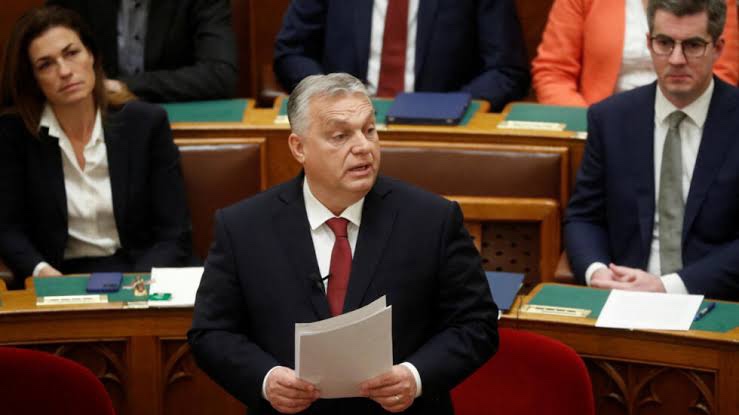EU leaders vow to overcome Orban block on Ukraine aid

EU leaders faced a setback as Hungarian Prime Minister Viktor Orban blocked a crucial 50-billion-euro aid package for Ukraine. Despite the failure to secure immediate support, the leaders have committed to reconvene for an emergency summit early next year to address the impasse.
The veto dealt a blow to Kyiv’s budget support, even as the EU took a symbolic step by agreeing to open membership talks. The Ukrainian foreign ministry anticipates the completion of necessary legal procedures by January 2024 to expedite the funding process.
German Chancellor Olaf Scholz expressed optimism about reaching an agreement with Orban at the upcoming summit. European Commission chief Ursula von der Leyen assured that alternatives would be explored, including the possibility of the 26 supportive EU countries providing aid outside the bloc’s budget, bypassing Hungary’s opposition.
Irish Prime Minister Leo Varadkar acknowledged the need to regroup in the coming year for a potential workaround or agreement. Orban, linking EU funds for Ukraine to frozen funds for Hungary, asserted the opportunity for Hungary to assert its deserved treatment.
Orban’s stance, seen as Russia’s closest ally in the EU, drew praise from the Kremlin. Moscow, critical of the EU’s decision to open accession talks, deemed it a politicized move that could destabilize the union.
While the approval of membership talks was hailed by Ukraine’s President Volodymyr Zelensky and the White House, French President Emmanuel Macron emphasized the distance to effective enlargement.
Orban’s departure during the vote raised concerns among EU leaders about potential tactics affecting bloc unity in future decisions. The road to Ukraine’s EU membership now hinges on agreement among EU states on a negotiating framework.












